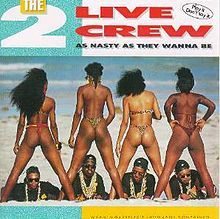“Punting the Pundits” is an Open Thread. It is a selection of editorials and opinions from around the news medium and the internet blogs. The intent is to provide a forum for your reactions and opinions, not just to the opinions presented, but to what ever you find important.
Thanks to ek hornbeck, click on the link and you can access all the past “Punting the Pundits”.
Follow us on Twitter @StarsHollowGzt
Paul Kruman: Lone Star Stumble
Remember the Texas economic miracle? In 2012, it was one of the three main arguments from then-Gov. Rick Perry about why he should be president, along with his strong support from the religious right and something else I can’t remember (sorry, couldn’t help myself). More broadly, conservatives have long held Texas up as a supposed demonstration that low taxes on the rich and harsh treatment of the poor are the keys to prosperity.
So it’s interesting to note that Texas is looking a lot less miraculous lately than it used to. To be fair, we’re talking about a modest stumble (pdf), not a collapse. Still, events in Texas and other states – notably Kansas and California – are providing yet another object demonstration that the tax-cut obsession that dominates the modern Republican Party is all wrong.
The facts: For many years, economic growth in Texas has consistently outpaced growth in the rest of America. But that long run ended in 2015, with employment growth in Texas dropping well below the national average and a fall in leading indicators (pdf) pointing to a further slowdown ahead. In most states, this slowdown would be no big deal; occasional underperformance is just a fact of life. But everything is bigger in Texas, including inflated expectations, so the slowdown has come as something of a shock.
New York Tiimes Editorial Board: Hillary Clinton, Voting Rights and the 2016 Election
A basic fact often gets lost in the propaganda that swirls around voting laws in this country: between one-quarter and one-third of all eligible voters – more than 50 million Americans – are not registered.
That alarming statistic is the backdrop to efforts by Republicans in recent years to pass state laws that restrict ballot access, a recent Democratic campaign to push back against those laws, and a bold set of proposals that Hillary Rodham Clinton laid out Thursday afternoon in a speech at Texas Southern University, a historically black college in Houston. [..]
Making voting easier for all eligible voters should be the epitome of a nonpartisan issue. Unfortunately, stopping people from voting has become a key part of the modern Republican playbook.
The 2016 election will be about many important issues, from income inequality to immigration to health care to education, but at its core it will be a test of two ideas of what it means to be a democracy. One is currently embodied by what Mrs. Clinton called “a sweeping effort to disempower and disenfranchise people of color, poor people and young people from one end of our country to the other.”
The other, as Mrs. Clinton put it, is that, “We should do everything we can to make it easier for every citizen to vote.”
Norman Solomon: The USA Freedom Act Is a Virtual Scam
Some foes of mass surveillance have been celebrating the final passage of the USA Freedom Act, but Thomas Drake sounds decidedly glum. The new law, he tells me, is “a new spy program.” It restarts some of the worst aspects of the Patriot Act and further codifies systematic violations of Fourth Amendment rights.
In Oslo as part of a “Stand Up For Truth” tour, Drake warned at a public forum on Wednesday that “national security” has become “the new state religion.” Meanwhile, his Twitter messages were calling the USA Freedom Act an “itty-bitty step” — and a “stop/restart kabuki shell game” that “starts with restarting bulk collection of phone records.”






 Port Royal provided a safe harbour initially for privateers and subsequently for pirates plying the shipping lanes to and from Spain and Panama. Buccaneers found Port Royal appealing for several reasons. Its proximity to trade routes allowed them easy access to prey, but the most important advantage was the port’s proximity to several of the only safe passages or straits giving access to the Spanish Main from the Atlantic. The harbour was large enough to accommodate their ships and provided a place to careen and repair these vessels. It was also ideally situated for launching raids on Spanish settlements. From Port Royal, Henry Morgan attacked Panama, Portobello, and Maracaibo. Roche Brasiliano, John Davis (buccaneer), and Edward Mansveldt (Mansfield) also came to Port Royal.
Port Royal provided a safe harbour initially for privateers and subsequently for pirates plying the shipping lanes to and from Spain and Panama. Buccaneers found Port Royal appealing for several reasons. Its proximity to trade routes allowed them easy access to prey, but the most important advantage was the port’s proximity to several of the only safe passages or straits giving access to the Spanish Main from the Atlantic. The harbour was large enough to accommodate their ships and provided a place to careen and repair these vessels. It was also ideally situated for launching raids on Spanish settlements. From Port Royal, Henry Morgan attacked Panama, Portobello, and Maracaibo. Roche Brasiliano, John Davis (buccaneer), and Edward Mansveldt (Mansfield) also came to Port Royal.
Recent Comments